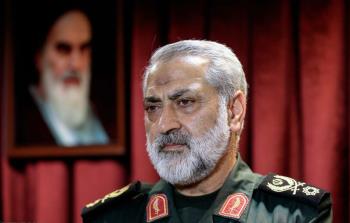Alwaght- Two coordinated terrorist attacks that on Wednesday morning targeted the Iranian parliament and the mausoleum of Imam Khomeini, the late founder of the Islamic Republic, took lives of 17 people and wounded 43.
The situation in Parliament, in central Tehran, ended after four and half an hour, with all of the three terrorist attackers being killed by the security forces at the scene.
At the mausoleum, northern Tehran, two terrorists stormed the place, both of them carrying explosive vests. One of them set off the suicide device outside the building of shrine of the late leader of Iran, and the second one was gunned down by the security forces before he could detonate his suicide vest.
ISIS self-style news agency, Amaq, said the terrorists group claimed responsibility for brutal twin attacks.
Aside from the unprecedented incident in Iranian capital city and the number of the victims of the terrorist attacks, their coincidence with some regional developments is very significant. On May 2, the Saudi Deputy Crown Prince and Defense Minster Mohamed bin Salman in his anti-Iranian comments had said that the kingdom “will work to have the battle in Iran.” He further accused Tehran of posing threats to the regional countries.
These comments took a practical form when the US President Donald Trump visited Riyadh on May 20. The trip emboldened the Saudi rulers to mobilize forces for more serious hostility against Iran.
The hostile Saudi approach went beyond the ordinary limits, affecting sides commenting on Iran’s productive role in the region. One of the victims was Qatar that in past few days became subject to the Saudi leaders' all-out economic and diplomatic blockade after news reports said that the Qatari Emir Sheikh Tamim bin Hamad Al Thani in a message praised Iran’s anti-terror role in the region, though there are other reasons for the kingdom’s anti-Doha punitive measures. The kingdom accused Doha of moving against interests of Riyadh and Cairo by supporting the Muslim Brotherhood, an Islamic group labelled by Saudi Arabia and Egypt a terrorist organization. Moreover, the boycott comes as Qatar has proved it was not listening to the Saudi and allies' dictates and does not accede to Riyadh mandate.
According to Iranian Intelligence Minister, during last two years, the west Asian country’s security forces had foiled at least 100 terror plans. But this time the terrorists succeeded to carry out limited attacks on Iranian civilian places. The analysts agree, however, that the assaults by no means can be deemed considerable blows to the Islamic Republic by the pro-Riyadh terrorists.
What looks quite important is that Saudi Arabia intends to destabilize the region by supporting terrorist attacks across the world in general in the Resistance Axis countries in particular.
Certainly, such attacks are practically impossible to carry out without support from Saudi Arabia and other regional parties like the Israeli regime, but the readiness on the Iranian side was considerable. The situation was fast contained by precise coordination of the Iranian security forces including the Islamic Revolutionary Guard Corps (IRGC).



























